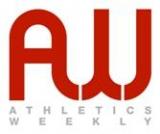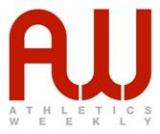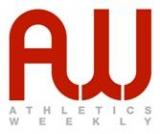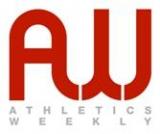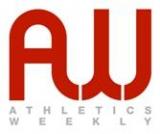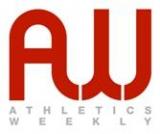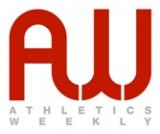Folders |
Coaching equalityPublished by
There is no justification for the dearth of female coaches in athletics, argues Chris McAlisterThis is the fourth in a series of five articles written by junior writers as part of a competition offering budding young journalists the chance to get their work in print. From the submitted articles we have selected our favourite five, with the overall winner also receiving a 12-month subscription to Athletics Weekly magazine. Tennis legend Virginia Wade described it as a joke”, several leading British journalists were in uproar while many others were left in complete shock Andy Murray has appointed a female coach! Why such surprise? After all, Amelie Mauresmo (Murray s coach) won Wimbledon in 2006 and, furthermore, she coached Marion Bartoli to championship victory in 2013. So was she not the perfect choice to guide Murray to consecutive Wimbledon titles, having done it all before? Athletics coaching is different to tennis coaching; the coach sets the training plan and oversees, unlike tennis where the coach acts effectively as a hitting partner while coaching technique. Hence, athletics coaches do not need to have similar athletic ability as their athletes, meaning that there should be an even spread of female and male coaches across high-performance male athletics. However, this is not the case and here are some suggestions as to why: From what I can see, however, there is little evidence to support these points. Marina Armstrong, a prominent coach of both male and female international junior 400m hurdlers, argues that while bringing up children is an issue for both male and female coaches, there is a greater day-to-day issue that affects both sexes choice whether to devote their time to coaching. Full-time work and coaching do not mix well,” she says. Coaching alone requires great organisation and planning and this cannot come while working full-time.” As full-time work is a problem equally affecting both genders, the problem may lie in the perceptions of female coaches instead. As mentioned above, some male athletes may worry that female coaches will not push them fully for one reason or another. Armstrong, never afraid to work her athletes hard, is quick to dismiss this. A good coach, male or female, will work their athletes at the right level,” she says. One just has to use intuition to work out what that level is.” She also feels that intuition (knowledge of an athlete s needs, for example, whether they are overworked or not) is generally stronger in female coaches. If this is the case, perhaps female coaches could be even more benefi cial to an athlete. Some males, however, may perceive male coaches as knowing more about what is required to succeed as a male athlete. While there may be some truth to this, athletics boils down to running as quickly as possible for your set distance. Training, therefore, shouldn t really vary that much for gender within an event; just the intensity should change. Additionally, a study of athletics in the USA showed that, on average, female coaches came from a higher level of competition background within the sport, showing that they have more significant experience which they can pass on to their athletes. If this is the case in the UK, then female coaches will certainly be of benefit to male athletes. Once we dispel the mislaid beliefs about female coaches, we see that they can really help a male athlete. Perhaps as these beliefs disappear we will see more females coaching in our sport, and I believe that when we do, athletics will benefit hugely from it. Chris McAlister, 19, is a member of Sutton & District AC and is coached by Marina Armstrong. He won the senior boys English Schools 400m hurdles title in a PB of 53.39 earlier this year The winning article in this young writers’ competition series is included in the December 11 edition of Athletics Weekly magazine The post Coaching equality appeared first on Athletics Weekly. Read the full article at: www.athleticsweekly.com
|


